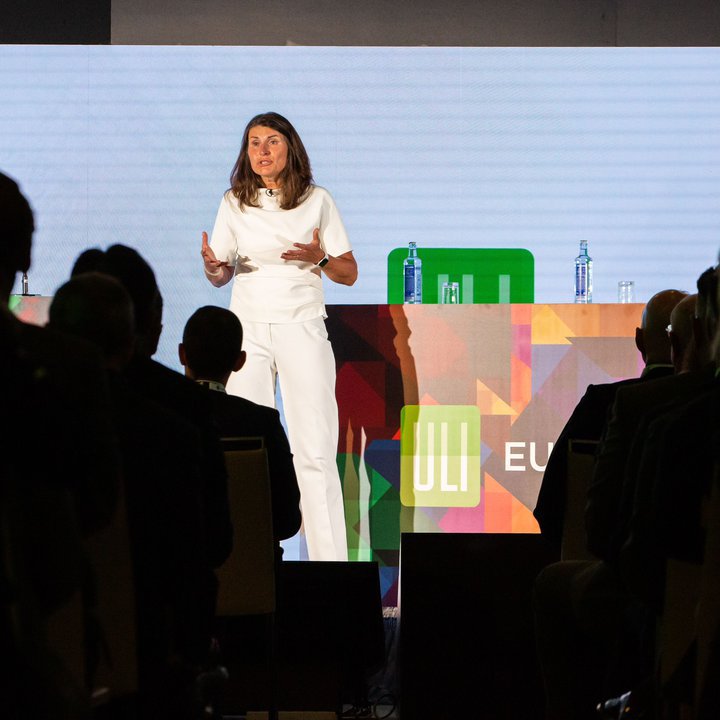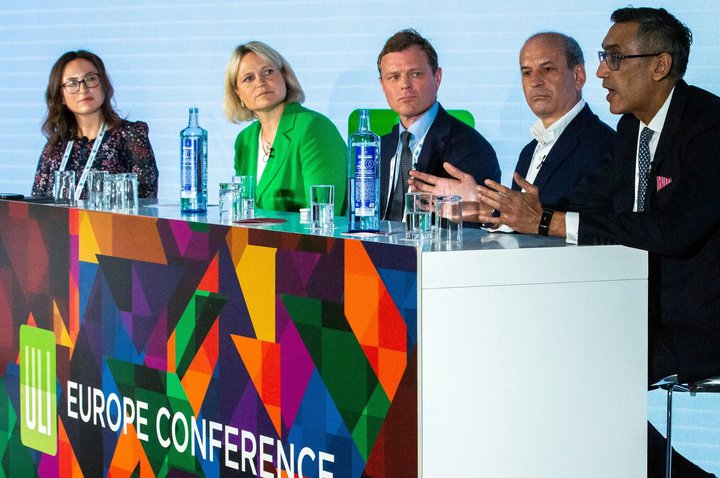ULI, a non-profit organisation that aims to design the future of the real estate sector to achieve a transformative impact on communities around the world, is holding the European Conference in Madrid from 6 to 8 June to analyse the current situation and the challenges facing the real estate industry, from capital markets and the complicated social and economic context that the continent is experiencing, through the post-pandemic impacts, to social equity, sustainability and the impact of artificial intelligence and new technologies. This event, one of the most important in the real estate sector in Europe, was attended by more than 700 leaders representing the most important companies and institutions in the real estate industry in the world.
The day began with the launch by Lisette Van Doorn, Chief Executive of ULI Europe, of the Transition Risk Assessment Guidelines, a document that sets out the guidelines for the real estate industry to achieve decarbonisation in all its assets. According to Lisette Van Doorn, "this document is the result of the work we have carried out over the last eight months and marks the roadmap for a more sustainable real estate sector in line with the guidelines of the C Change Summit".
Key cross-cutting issues such as climate change, the C Change movement, city planning, trends in living and the impact of technology on the transformation of the sector have been addressed in the different round tables.

LISETTE VAN DOORN, CHIEF EXECUTIVE ULI EUROPE
One of the most interesting panel discussions was moderated by Patricia Bandeira Vieira of KKR on the state of the capital markets, featuring Brad Hyler of Brookfield Asset Management, Annette Kröger Kroger of PIMCO Prime Real Estate, Ed Siskind of Cale Street Partners LLP and Rohan Sikri of The Xander Group. The speakers discussed the unprecedented change in the macro-economy, considering the speed of change and the impact of geopolitical tensions, highlighting the difficulty for companies to monitor and time their investments in a challenging environment of constant change.
Lars Huber, CEO of Hines and President of ULI Europe, pointed out in his speech another of the most serious risks facing the sector "the most striking challenge for us" he said "is the climate risk: ULI is well prepared to play an important role in this. C-Change is one of the initiatives to help the industry.
Alberto Valls, President of ULI Spain, said that this conference is a great opportunity and a showcase for Spain and for Madrid "as the main investors, builders and other agents of the real estate sector, a strategic sector in our economy, are here".
In the context of the conference, the Mayor of Malaga, Francisco de la Torre Prados, the Mayor of Oporto, Rui Moreira and the former Mayor of Barcelona, Joan Clos, took part in the round table on the leading role of the cities of southern Europe. Francisco de la Torre highlighted the growth strategy of the Andalusian city to consolidate its growth, based on the development of cultural infrastructures, communications and technological capabilities. Francisco de la Torre took advantage of the presence of the leaders of the real estate sector to invite them to invest in his city, "we need more houses, more offices and more training centres" and also pointed out as one of his objectives "to simplify the bureaucratic processes, "because people need more houses and they need them as soon as possible".
Sponsors of the event included Hines, CBRE, Deloitte, GreenbergTraurig, Immobel LaSalle, Longevity Partners, PIMCO, CREA Madrid Nuevo Norte, Pbb, ECE, Mutua Madrileña, Primonial Reim, Revive, Aedas Homes, AG Real Estate, Anticipa Aliseda, Altum Advisors, Azora, Edge, Green Generation, Kennedy Wilson, Merlin Properties, Metrovacesa, Neinor Homes and STAM Europe.
